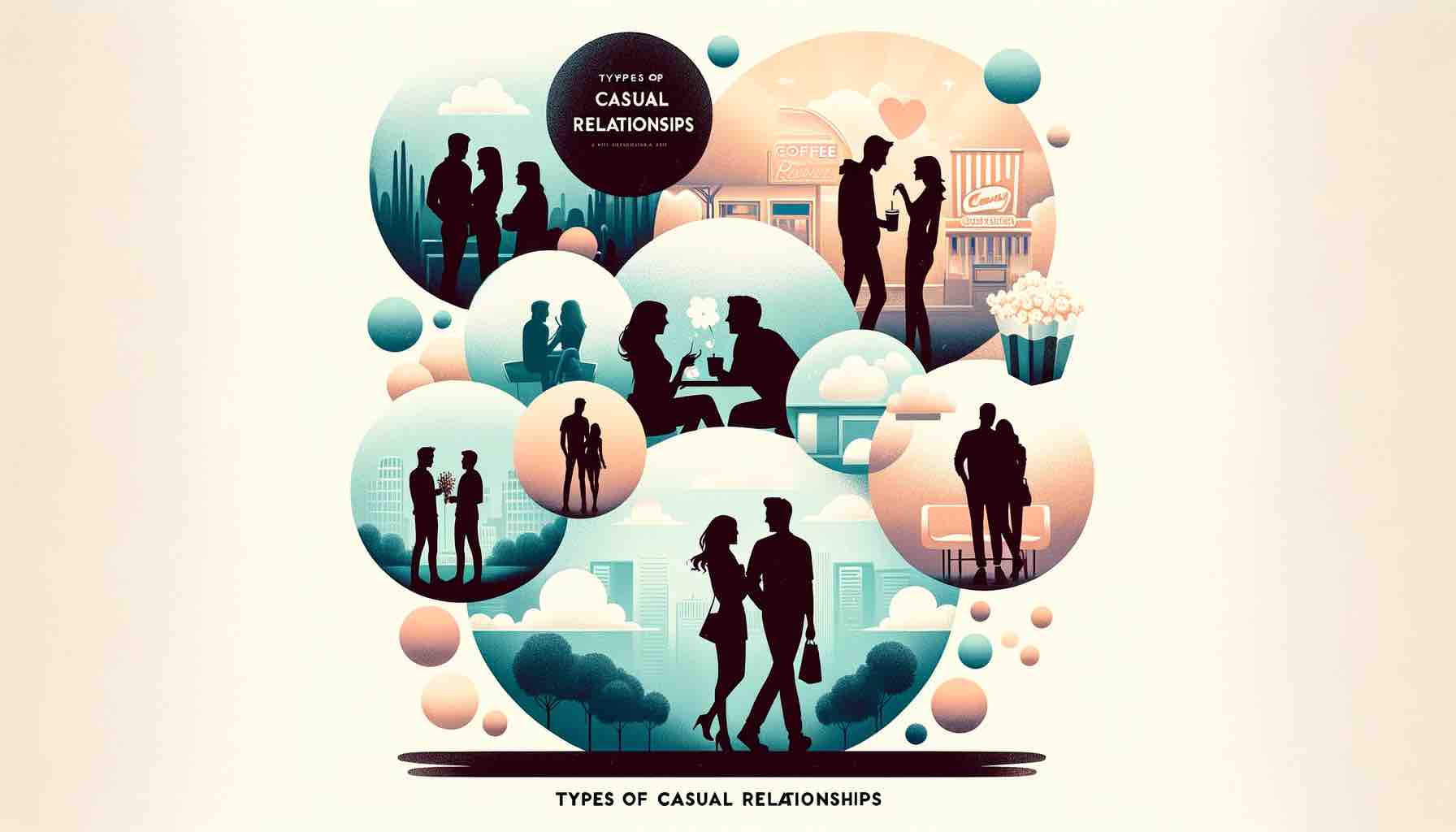Toxic relationships are a concerning issue affecting many individuals, yet their meaning and consequences often go unnoticed or misunderstood. A toxic relationship refers to a damaging and unhealthy dynamic between two or more individuals, characterized by emotional, psychological, or even physical harm. This article will delve into the toxic relationship meaning, offering a comprehensive understanding of its implications. Furthermore, we will explore 12 lesser-known facts about toxic relationships to raise awareness and promote healthier connections.
Toxic Relationship Meaning: Unknown Facts To Know
1. Toxic Relationship Definition
A toxic relationship is a dynamic that is detrimental to the well-being of those involved. It often entails manipulation, emotional abuse, control, and a lack of respect and trust.
A toxic relationship refers to a damaging and unhealthy bond between individuals, characterized by negativity, manipulation, and emotional harm. In such relationships, one or both parties exhibit controlling behaviors, disrespect, and lack of empathy, leading to constant conflicts and emotional distress. Toxic partners may belittle, gaslight, or isolate their counterparts, undermining their self-esteem and autonomy. Trust and communication erode, replaced by fear and insecurity. The relationship becomes a vicious cycle of toxicity, hindering personal growth and happiness. Recognizing the signs is crucial for one’s well-being. Ending a toxic relationship may be difficult but is vital for restoring emotional balance and fostering healthier connections.
Such relationships can occur between partners, friends, family members, or even in the workplace. They perpetuate negativity, erode self-esteem, and hinder personal growth.
2. Toxic Relationships Come in Various Forms
Toxic relationships are not limited to romantic partnerships alone. They can manifest in friendships, parent-child relationships, or between siblings. Workplace relationships can also become toxic due to power struggles, harassment, or a hostile environment.
Friendships, family ties, or work relationships can all be toxic. In friendships, it may involve constant criticism or one-sided support. Family toxicity may arise from unresolved conflicts or emotional abuse. At the workplace, toxic relationships manifest as power struggles or a hostile environment. Regardless of the type, toxic relationships are detrimental, impacting mental and emotional health. Recognizing these dynamics is essential for setting boundaries, seeking support, and ultimately fostering healthier connections that promote positivity and personal growth.
Identifying these different forms of toxicity is crucial to breaking free from such damaging connections.
3. Early Warning Signs
Recognizing the signs of a toxic relationship is crucial for prevention and early intervention. Some common indicators include excessive criticism, manipulation, lack of empathy, controlling behavior, and constant conflicts.
Early warning signs in toxic friendships include constant criticism or belittling, a lack of support during difficult times, excessive jealousy or possessiveness, and a pattern of manipulation or deceit. Toxic friends may be dismissive of your feelings and needs, making you feel unheard or undervalued. They might pressure you into making decisions against your will or isolate you from other friends and support systems. Trust your instincts and be attentive to these red flags. Addressing these issues early on or considering distance from the friendship is crucial for your emotional well-being.
If left unaddressed, these early warning signs can escalate into more severe issues.
4. The Impact on Mental and Physical Health
Toxic relationships take a heavy toll on both mental and physical health. Constant stress and emotional abuse can lead to anxiety, depression, and even physical ailments such as headaches and digestive problems. Toxic friendships can significantly impact both mental and physical health. Constant negativity, emotional manipulation, and stress associated with toxic friends can lead to anxiety, depression, and low self-esteem. The lack of support and genuine care can exacerbate feelings of loneliness and isolation. Physically, the stress and emotional turmoil from such friendships may result in sleep disturbances, weakened immune function, and other health issues. Recognizing and addressing these toxic relationships is essential for safeguarding overall well-being.
The longer the toxic dynamic persists, the more severe the consequences can become.
5. The Cycle of Abuse
In some toxic relationship meaning there exists a cycle of abuse. The abuser alternates between moments of remorse and kindness, drawing the victim back in with false promises. The cycle of abuse in toxic relationships follows a pattern of tension-building, explosion, and reconciliation. Initially, tension builds as conflicts arise and communication breaks down. This leads to an explosive phase, characterized by emotional, verbal, or even physical abuse. Afterward, the abuser may apologize, show remorse, and promise change, leading to a reconciliation phase. However, this cycle repeats, becoming increasingly destructive. Breaking free from this cycle requires recognizing the patterns and seeking help to escape the harmful relationship.
This cycle perpetuates the toxic bond, making it even more challenging for the victim to escape.
6. Toxicity Is Not Always Evident
In some cases, toxic relationship meaning may not exhibit overt signs of abuse. Covert manipulation, gaslighting, and subtle control can be equally damaging. These hidden forms of toxicity are insidious and harder to recognize, making it vital to trust your instincts and seek support if you suspect such behavior.
7. Codependency and Toxic Relationships
Codependency often goes hand in hand with toxic relationships. Codependent individuals may feel compelled to stay in the toxic dynamic, believing they can change the other person or that they are unworthy of healthy love. Breaking free from codependent tendencies is a critical step in escaping toxic relationships.
8. Toxic Relationships Can Be Addictive
Believe it or not, toxic relationships can become addictive due to the intermittent reinforcement that comes from occasional positive interactions. This creates a reward system that keeps the victim hooked on the hope that things will change. Acknowledging this addictive aspect can be the first step towards breaking the cycle.
9. The Role of Boundaries
Establishing and maintaining boundaries is vital in any healthy relationship. In toxic relationships, boundaries are frequently disregarded or violated, leading to emotional harm. Learning to set and assert boundaries is crucial in breaking free from toxic dynamics.
10. Impact on Self-Esteem
Toxic relationship meaning imply significant impact on self-esteem. Constant criticism and belittling erode one’s sense of self-worth, leaving the individual feeling inadequate and powerless. Rebuilding self-esteem after a toxic relationship requires patience and self-compassion.
11. Seeking Professional Help
Leaving a toxic relationship can be challenging and emotionally draining. Seeking professional help, such as therapy or counseling, can provide invaluable support during this process. Therapists can help individuals process their emotions, learn healthier coping mechanisms, and rebuild their lives after a toxic relationship.
12. The Path to Healing
Healing from a toxic relationship meaning in a journey involves self-reflection, self-care, and personal growth. Patience and forgiveness toward oneself are essential elements of this transformative journey.
Understanding the toxic relationship meaning is crucial in recognizing and addressing these harmful dynamics in our lives. Toxic relationships come in various forms and can affect anyone, regardless of age, gender, or background. By being aware of the signs and consequences of toxicity, individuals can take proactive steps to protect their mental and physical well-being. Seeking professional help and learning to set boundaries are pivotal in breaking free from toxic relationships and fostering healthier connections in the future. Remember, you deserve love and respect in your relationships, and with the right support, you can overcome the negative impact of toxic dynamics and build a fulfilling life.




